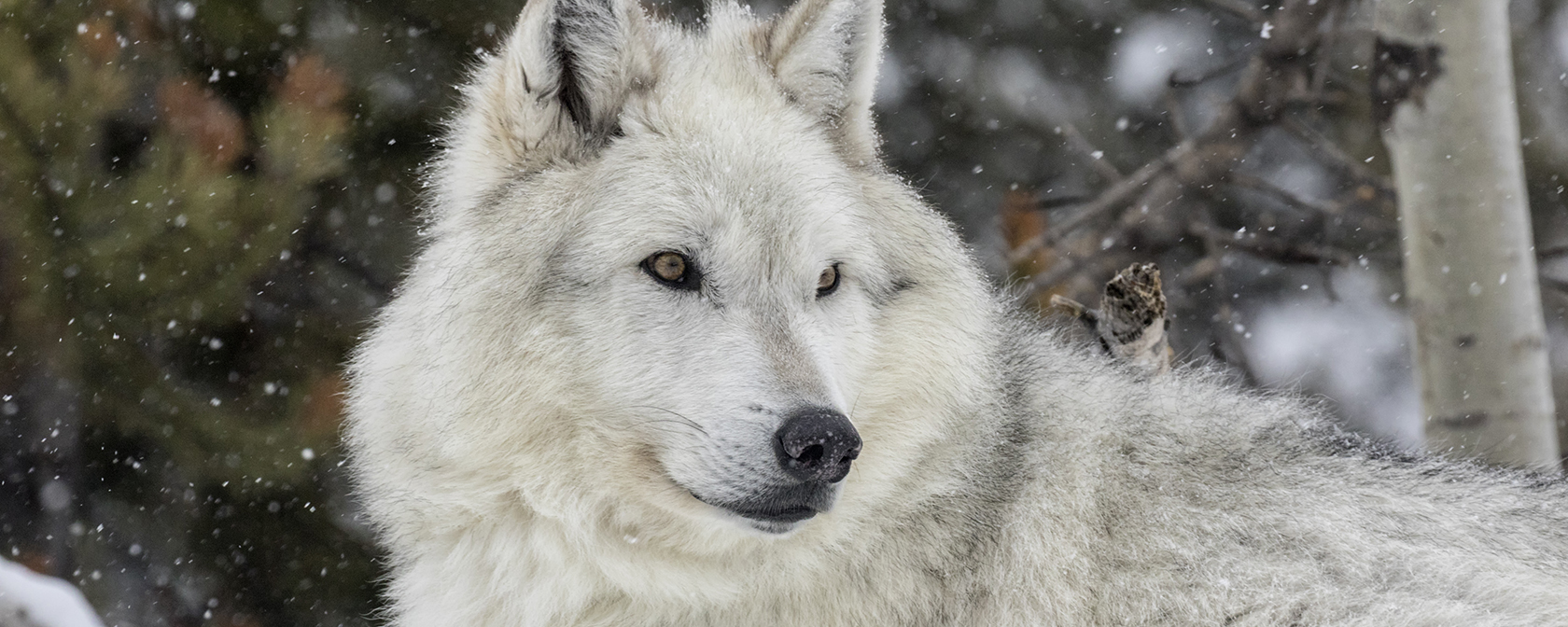By Kitty Block and Sara Amundson
Today the U.S. Fish and Wildlife Service announced its reckless decision that wolves in the Northern Rocky Mountains do not warrant federal relisting under the Endangered Species Act, despite ongoing and brutal carnage in the region.
Wolves in Idaho, Montana and Wyoming have faced relentless persecution from trophy hunters, trappers and predator control agents for years following their loss of federal protection under the Endangered Species Act. For example, in about 85% of Wyoming, wolves can be killed on sight using virtually any method at any time of the year. Conditions in Idaho and Montana became even worse in 2021, when those states enacted policies aimed at drastically increasing wolf killings and slashing the wolf population. Now entire wolf families, including pups, can be killed using the most horrific methods, including strangling wire neck snares and with the use of bait and night vision equipment. Both states currently offer reimbursements—essentially bounties—for costs incurred killing wolves.
In response to Idaho and Montana’s aggressive new laws, the Humane Society of the United States, the Humane Society Legislative Fund and our allies filed a legal petition in May 2021 urging the U.S. Fish and Wildlife Service to immediately restore Endangered Species Act protections for gray wolves in the Northern Rocky Mountains—an action the agency determined may be warranted in September 2021, when it launched a review of the status of wolves in the region. In August 2022, we joined with other groups and filed a new lawsuit challenging the federal government’s delay in acting on our petition.
Meanwhile, Idaho and Montana are continuing to ramp up their war on wolves. Last year, Idaho’s Fish and Game Commission approved a new wolf management plan with the goal of reducing the wolf population by 60% by 2028, largely through increasing and incentivizing trophy hunting and trapping. Montana is currently considering a new wolf management plan that, while not as explicit as Idaho’s plan, also seeks to drastically reduce the number of wolves in the state. Additionally, in recent years both states have begun using new modeling methods to estimate their wolf populations. Many scientists warn these methods are woefully unreliable as they could significantly overestimate the population. In other words, not only are Idaho and Montana seeking to reduce their wolf populations to dangerously low levels, but they are likely already overestimating the number of wolves living in their states.
The evidence for relisting Northern Rocky Mountain wolves under the Endangered Species Act is overwhelming, and we are devastated the U.S. Fish and Wildlife Service failed to act. Nearly 30 years after the first wolves were brought back to Yellowstone National Park and the Northern Rockies, and after millions of tax dollars spent on this important restoration, they are once again on the precipice of disaster.
We’ll never stop fighting on behalf of wolf families and the many people across the U.S. who care about them and want them protected. We are currently discussing next steps with our coalition partners, and we’ll be sure to keep you updated as our fight continues.
Sign our petition and join the fight to protect wolves!
Kitty Block is CEO of the Humane Society of the United States.
